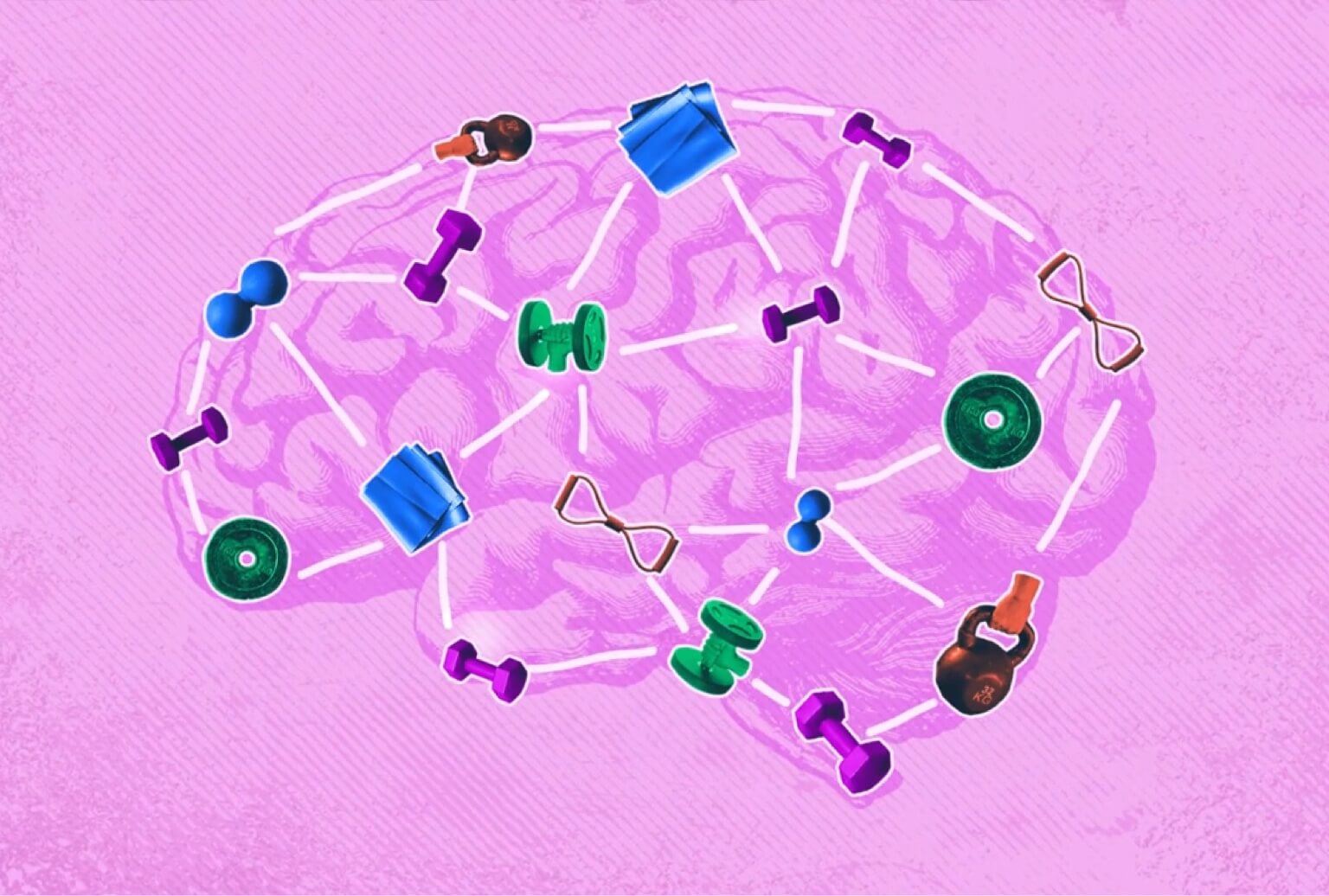We’ve all heard the advice, “move more, sit less.” Many of us even wear wrist devices (hello Fitbits and Apple Watches) that alert us to get up and move every hour.
The benefits of exercise on our physical and mental health are clear. It helps us manage our weight, reduce our health risks, improve our sleep, and reduce stress and anxiety. So one thing is clear: some physical activity is definitely better than none.
But are there benefits that go beyond physical and mental health ones? Can exercise actually help us learn?
How Exercise Impacts Our Brain
Yes, exercise can help us learn. According to a 2018 study in the British Journal of Psychology, aerobic exercise has the ability to boost our brain power enough for us to establish connections and learn new things.
In other words, exercise supercharges our brain.
But it doesn’t stop there. Learning is more than just the acquisition of new and unfamiliar knowledge. For us to retain that information, our brain has to consolidate it and securely store it in our long-term memory. While mental repetition definitely helps us do that, it turns out that what we do physically plays just as important of a role in this process.
As noted in Gretchen Reynolds’ New York Times article on memory mnemonics, “experiments show that when mice and rats jog on running wheels after acquiring a new skill, they learn much better than sedentary rodents do. Exercise seems to increase the production of biochemicals in the body and brain related to mental function.”
And it gets even more interesting. It’s not just the act of exercising that matters, the ‘when’ matters as well.
A 2016 study published in Current Biology found that exercising four hours after learning, but not immediately after, improves our ability to retain information long term.

Can there be too much of a “good” thing when it comes to exercising?
So, exercise can improve our memory and ability to retain new knowledge, but what happens if we overdo it?
We see it all the time. Instagram exercise buffs push us to “go harder.” Crossfit and HIIT workouts seem to be everywhere. And then there are those articles that tell us to push through a wall or fatigue, but are we actually doing more harm than good? Is there a point of diminishing returns beyond the obvious one of physical exhaustion?
The short answer is, again, yes.
Too much physical exertion doesn’t just exhaust our body, it makes our brain tired and affects both our decision-making and brain activity.
According to a 2019 study published in Current Biology, excessive training, specifically in athletes, results in decreased activity in the part of our brain involved in decision-making. It leads us to become more likely to choose immediate gratification over long-term rewards.
Additional research shows that as our body becomes physically depleted, our brain starts to experience “motivational fatigue,” affecting our decision-making process. When this happens, our brain “may not consider it worth to wait for higher rewards” instead opting for short-term rewards.
Why does this happen? Intense physical activity and intense cognitive tasks actually affect the same region of our brain, the lateral prefrontal cortex. This is the part of our brain that is involved in the broader aspects of behavioral or executive control such as decision making, working memory, planning, cognition and abstract reasoning.
So while we may believe that our intense Peloton class is getting us into better shape, it could also be affecting our ability to make better decisions about our finances, our relationships, our career and even, our studying. The reality is overtraining makes us impulsive.

Whether you’re a gym buff or a casual exerciser, it’s all about balance
While overtraining negatively impacts our ability to make decisions, letting our bodies stay inactive for too long also puts our brain at risk. When we are inactive, our brain becomes inactive too, leading to symptoms of brain fog from difficulty sleeping to impaired memory to increased stress.
The reality is moderate exercise provides immense cognitive benefits. It helps us focus, stay alert and basically be on top of our game. But too much high-intensity exercise over time can have the opposite effect.
So, if you are learning something new, you should exercise approximately four hours after to better retain it. But with a caveat, if you overdo the intensity, then you can potentially negatively impact your cognitive functioning. It’s a balancing act.
When it comes to exercising and learning, it is better to work smarter not harder.

 learning science
learning science